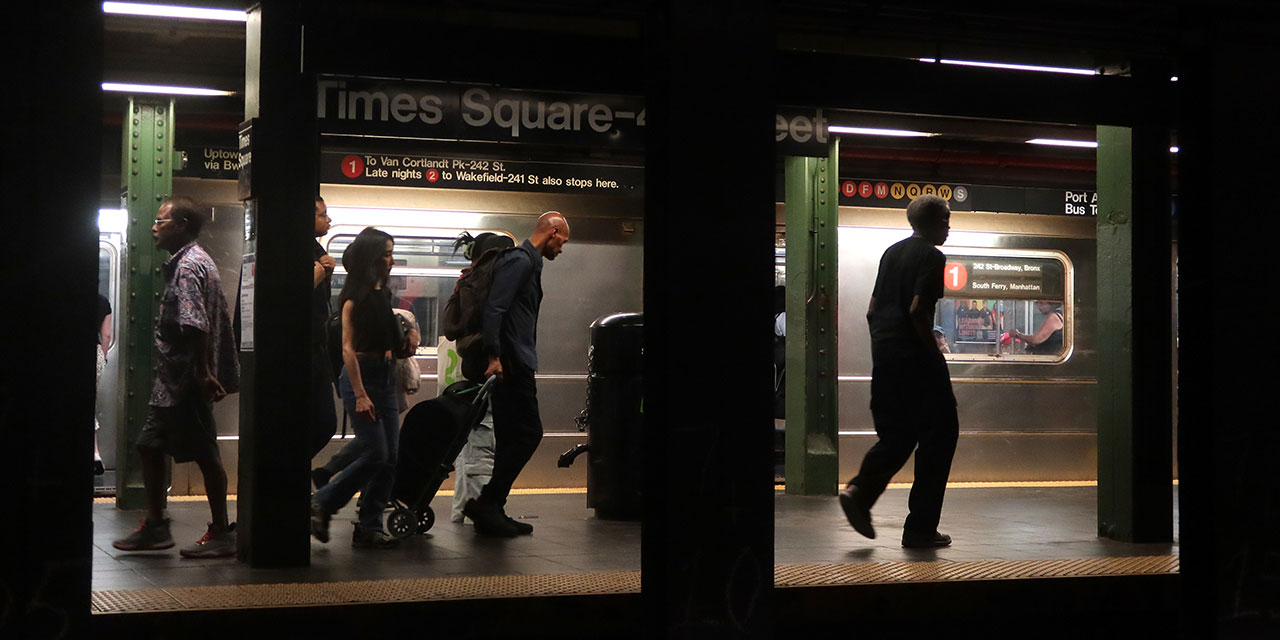
Iryna Zarutska’s senseless murder on a Charlotte, North Carolina, light-rail train has reignited debate over bail reform and criminal recidivism. This is a worthwhile debate for New York City, too. Many of what Charlotte’s mayor calls “tragic failures that contributed to Zarutska’s murder also afflict Gotham’s transit system. And the only way to address the problem is more aggressive enforcement of basic subway rules, including prosecuting farebeating.
New Yorkers remain fearful of using public transit, owing to a series of violent crimes by repeat offenders, including the gruesome murder by arson of a woman in the Coney Island subway station last December. Comprehensive data analysis published by Vital City in January 2025 shows that New Yorkers have cause for concern. Subway assaults have tripled since 2009; violent-crime recidivism has doubled since 2019; 16.8 percent of violent subway offenders had prior arrests for similar crimes during the prior six years; and 24.7 percent of those same violent subway offenders had prior arrests for farebeating in the past six years.
Three years ago, Mayor Eric Adams instituted a Safe Subway Plan to address New Yorkers’ anxieties, but this didn’t go far enough. New York needs zero tolerance for all subway crimes. That means that the city’s district attorneys must resume prosecutions for turnstile jumping.
In the summer of 2024, former NYPD commissioner William Bratton and City Journal contributing editor Rafael Mangual called on the city to resume fare evasion prosecutions. They also identified some of the central obstacles to prosecuting these crimes—the bail and discovery reforms of 2020 and the reluctance of district attorneys to prosecute fare evasion.
New York’s 2020 discovery reforms forced prosecutors to go to unnecessary lengths to acquire and share with the accused all the paperwork in their possession. Of course, all relevant material should be shared—exculpatory materials, impeachment materials, and recorded statements of witnesses and the accused—but the statute initially required far more. A prosecutor’s failure to acquire even a single memo-book entry from a police officer, for example, could derail an entire prosecution.
Since 2020, New York prosecutors have spent significantly more time requesting, compiling, and serving discovery than going to the grand jury, appearing in court, writing motions, and going to trial. The amount of time, effort, and resources required to obtain every piece of paper from every police officer even tangentially involved with a case has made the task of prosecuting hundreds of cases unduly onerous, if not impossible. During my own tenure as an assistant DA, my colleagues and I would often joke that we were glorified paper pushers first, prosecutors second.
In practice, the 2020 discovery reforms forced young prosecutors, tasked mostly with pursuing misdemeanor charges like fare evasion, to triage offenses. To reduce the caseload and prevent burnout, crimes like fare evasion never make it past the Early Case Assessment Bureau stage, in order to prioritize violent crimes and individual-victim crimes. (There were always exceptions to this rule, however—particularly in cases involving contraband or more serious alleged criminality.)
Some welcome changes have appeared on this front. Effective August 7, 2025, the state amended the discovery laws to require disclosure only of information “related to the subject matter of the charges” against the accused. These changes will significantly reduce the paperwork burden on young prosecutors while maintaining their ability to provide the accused with all relevant information for preparing a defense.
More remains to be done. The New York Post reports that 63 transit recidivists in New York City account for more than 5,000 arrests but only five incarcerations between them. The Metropolitan Transportation Authority (MTA) has called for DA offices to resume prosecutions for fare evasion, citing the loss of more than $600 million in revenue in 2023. This is a good start. Boston, Massachusetts, has also begun a crackdown on fare evasion.
It’s understandable that DA offices would triage cases to avoid overwhelming young prosecutors. But they also have an obligation to deter the recidivist criminals who threaten rider safety on public transit.
As tragedies like the murders in Charlotte and Coney Island show, no transit crime, including fare evasion, should be tolerated.
Photo by Gary Hershorn/Getty Images
City Journal is a publication of the Manhattan Institute for Policy Research (MI), a leading free-market think tank. Are you interested in supporting the magazine? As a 501(c)(3) nonprofit, donations in support of MI and City Journal are fully tax-deductible as provided by law (EIN #13-2912529).

















